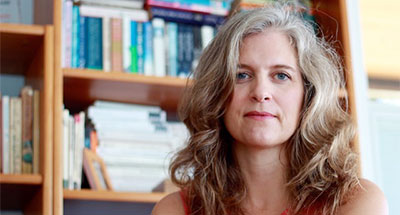
Katharina Heyer
Associate Professor
Office: Saunders 615
Telephone: 1 (808) 956-7512
Email: heyer@hawaii.edu
Browse My Publications:
Background
I was born and raised in what was then called the "American sector" of divided West Berlin, Germany. Attending a bilingual school prompted me to go to college in the United States and then to move to Kyoto for three years of Japanese language study. It was in Japan that I became interested in the shared postwar history between Germany, Japan, and the United States. This relationship led me to Hawaiʻi to study the U.S. occupation and the emergence of rights-based social movements. I have a PhD from this department and wrote a dissertation comparing disability rights movements in the three countries. I spent two years at the American Bar Foundation with a sociolegal fellowship and then returned to Hawai’i for a research position at the Center on Disability Studies, to teach courses in disability law, and, finally, to join our department as faculty.
Education
- PhD, Political Science, University of Hawai’i, 2002
- BA, Government, Smith College, 1988
Courses
- POLS 367: Disability Law and Politics
- POLS 374: Law, Politics and Society
- POLS 375: Constitutional Law I: Institutional Power
- POLS 376: Constitutional Law II: Rights and Liberties
- POLS 377: Topics in Law and Politics
- POLS 390: Political Inquiry and Analysis
- POLS 660: Public Law and Judicial Systems
- POLS 770: Seminar: Public Policy
Research
My research is informed by the sociolegal inquiry into rights and social movements. I am interested in the role of rights discourse, legal analogies, and global norms in the framing of disability as a civil and human rights issue. My book Rights Enabled: The Disability Revolution (2015, Michigan) follows the journey of disability rights from the United States to Japan, Germany, and the United Nations and examines how notions of disability, equality, and rights become reinterpreted and contested by national and global networks. Within the United Nations, I focus on inclusive education, workplace accommodations, and disability awareness campaigns. I am also interested in the politics of disability rights within a contemporary discourse on prenatal testing, selective abortion, wrongful birth, and death and dying policies.

